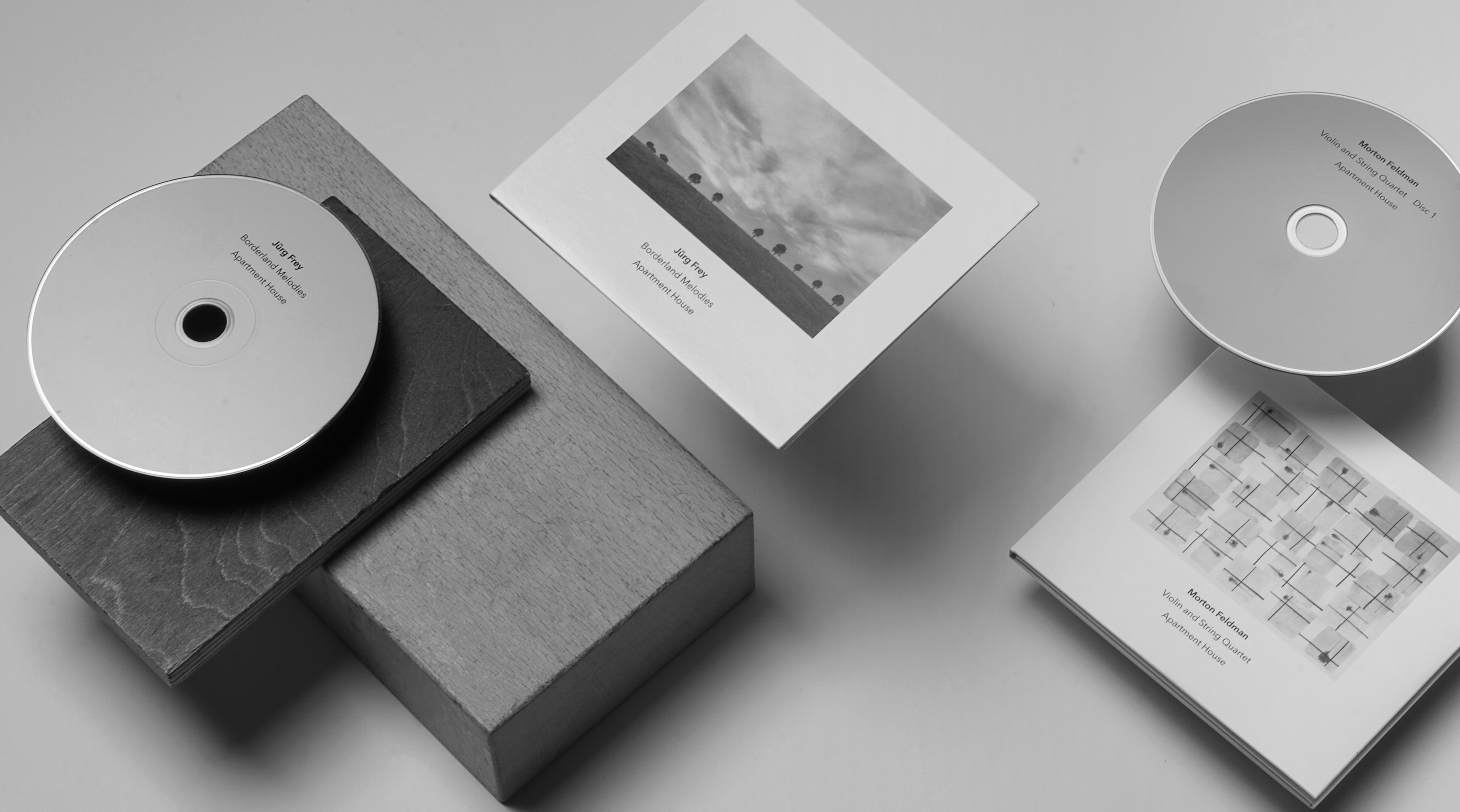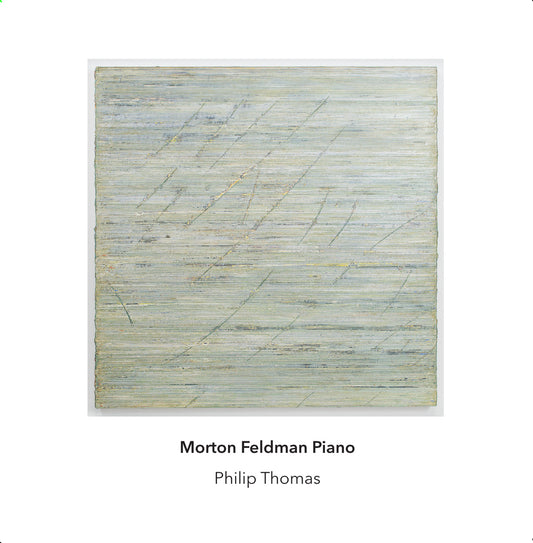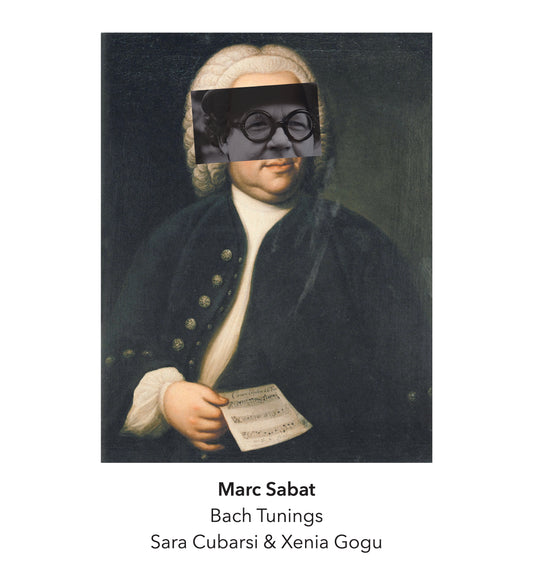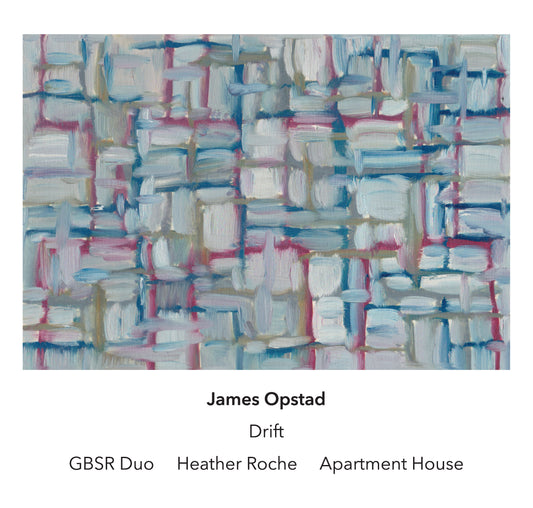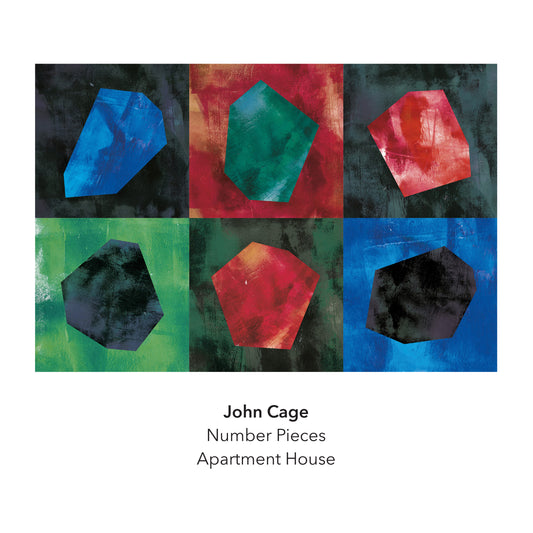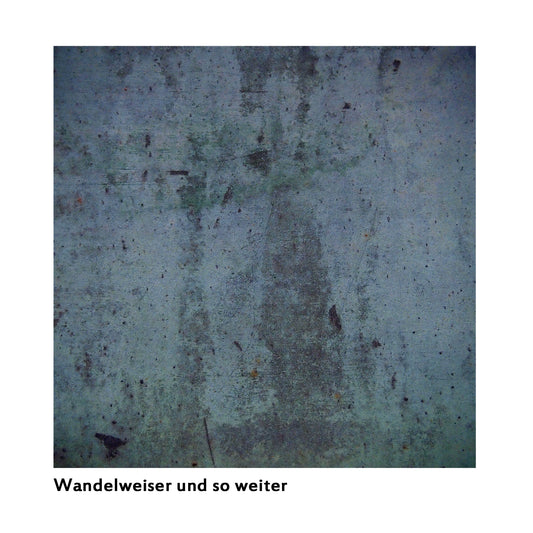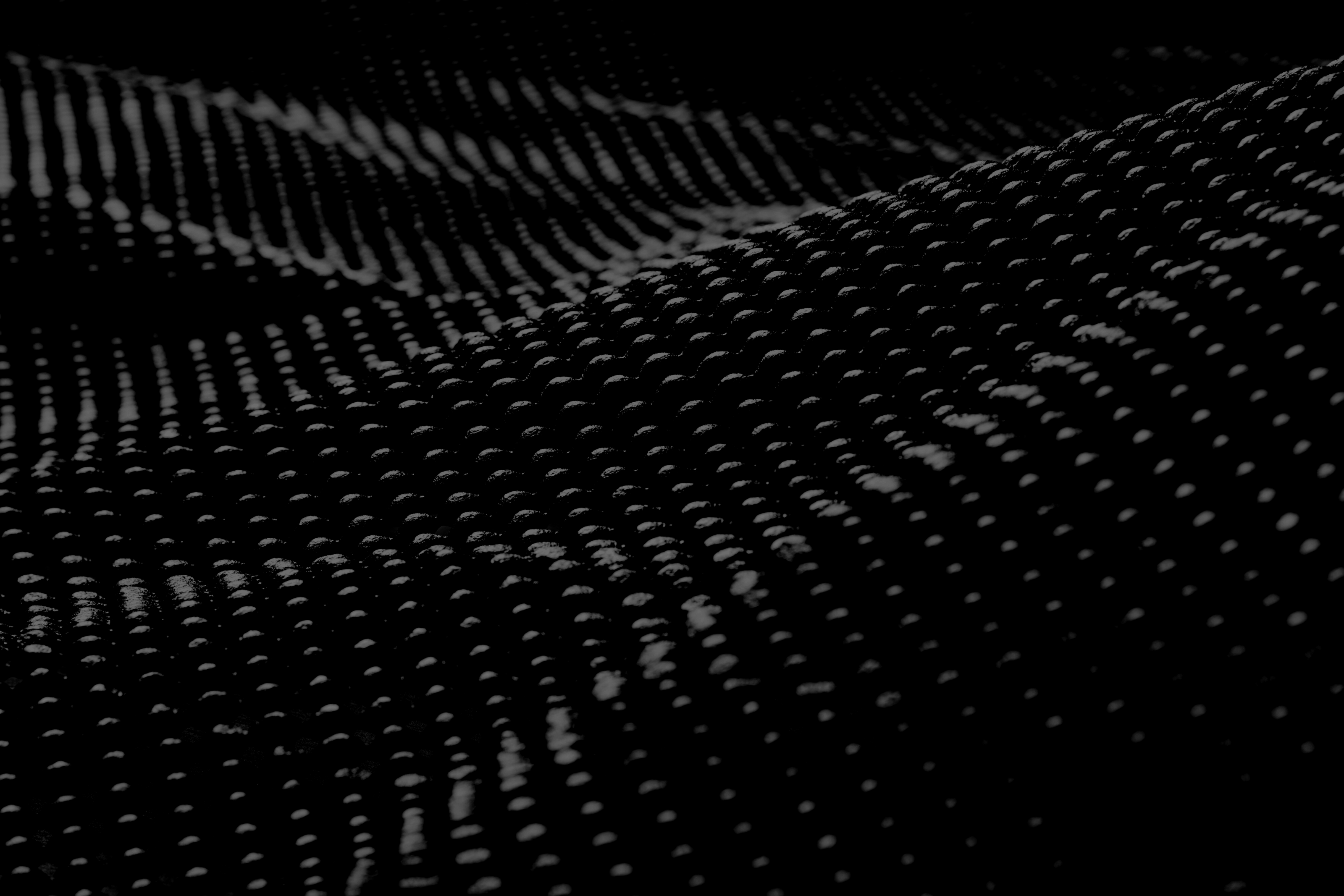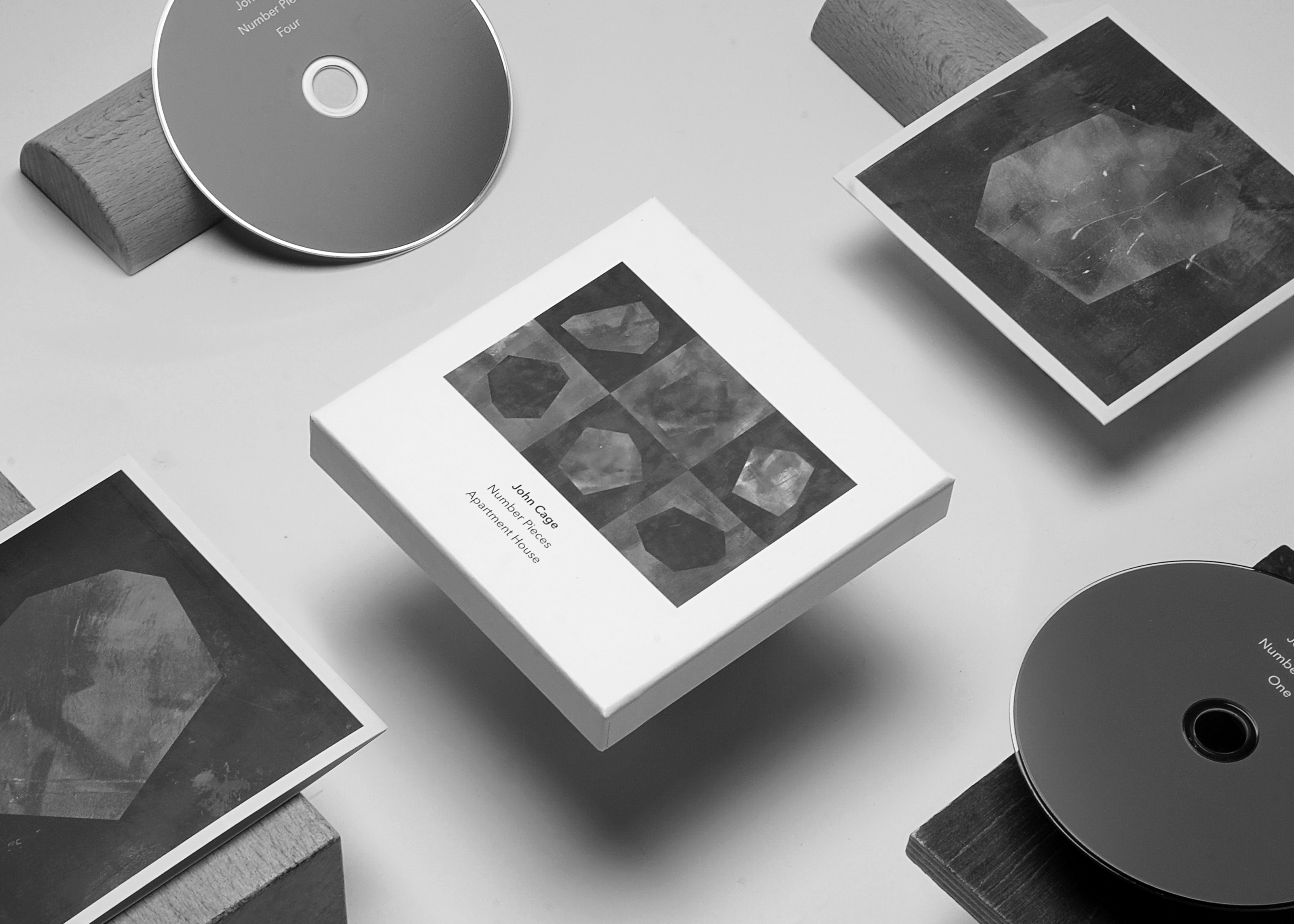
Feldman Trios box set
A 6-CD box set of Morton Feldman's three long pieces for flute, piano and percussion, played by the GBSR Duo (Siwan Rhys & George Barton) with Taylor MacLennan on flutes.
Why Patterns? (1979) 30 minutes
Crippled Symmetry (1982) 90 minutes
For Philip Guston (1984) 280 minutes
Six and a half hours of great music, beautifully played.
More information including an excellent interview with the musicians and a couple of great early reviews here
And you can listen to a taster here
Other Morton Feldman CDs
-
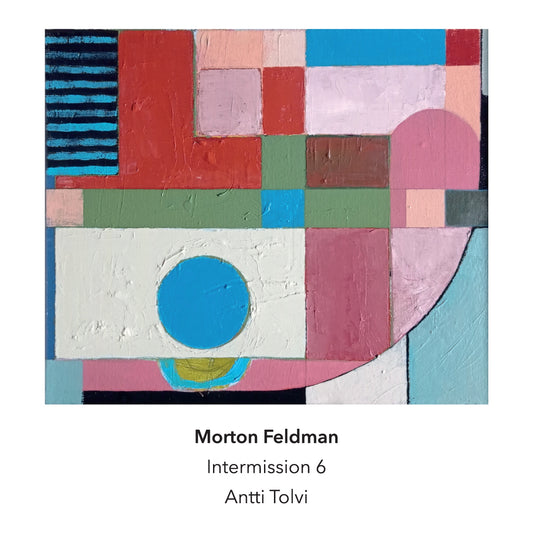
>at241
Morton Feldman
Intermission 6
Antti Tolvi, piano

INTERVIEW WITH ANTTI TOLVI
How did the Intermission 6 project come about, and have you played any of Feldman's music before?
Feldman’s music has had this weird draw for me for a long time. I’m not sure why that is, but I just can’t get enough of it.
Some years ago I got my hands on the wonderful Philip Thomas 5-CD Feldman Piano box set on Another Timbre, and I‘ve listened to it a lot. I started getting more and more interested in this piece Intermission 6 (of which three different recordings in the box set). It’s the piece which has the most silence in it, and silence has been one thing in which I’ve been very much interested. So I went and found the score of the piece, and I was fascinated by it. As I’m not a classically trained pianist, I was really happy that one of my favourite pieces of Feldman was something I could pretty easily play myself. Then I tried to find longer recordings of this piece, but there only seemed to be quite short recordings of it. So I decided to start to study and practice the piece, and finally had the idea of making a long duration recording of it. So, over about two years I slowly got to know, and to really get into this piece. And finally one day, actually after a nice two week holiday around Turkey and then one week in Finland´s archipelago, I made a two hour recording of this piece. And here we are.
So, no, I haven’t played myself Feldman’s music before. But I have played a lot of music by and with some Wandelweiser composers (Werder, Houben, Thut, Beuger...) and I can see how some of their ideas come from the same river as Feldman’s ideas.
That’s interesting. When you sent me the recording, I could tell that you weren’t a classically trained pianist, but equally that you weren’t just dabbling in the music, but must have spent a lot of time with it, because you’d really got inside the piece. There’s an affection, and a care and attention, in your performance, which is compelling and convincing. I asked you to record a version that would fit on a single CD, and – as you say – here we are.
Listening to it recently it struck me that I should have added a note on the cover saying that the music is intended to be very quiet throughout, so should be played back at a low level, with the quietist sounds on the edge of audibility. Otherwise there’s a temptation to play the disc at a high volume, so that the louder notes and chords ring out, but that’s clearly not what Feldman intended. In other interpretations I’ve heard, the piece lasts between 3 and 12 minutes. How difficult was it over the unusually extended duration to keep to the low dynamic that Feldman asks for? Was it an exacting and exhausting experience, or did you enjoy it?
Yes, I agree, the CD (and the whole piece) shouldn’t be played too loud. But I also think that in general people who choose to listen Feldman don’t turn the volume up very loud right away. So I’m not so worried about that.
And I have to say that the grand piano I used in the recording would definitely need making more sensitive to the pianist’s touch in most contexts. It was sometimes very very hard to make quiet sounds with this piano! The notes sometimes almost exploded out, no matter how gently I pressed the key. But I found this interesting; it gave the piece more depth, different levels and liveness. It was pretty random when the piano decided to be a bit louder, and when not. And if I have understood right, Feldman composed his piano music on his particular instrument, which shaped the way his compositions unfolded. So for me this performance still stays nicely in line with what’s there at the centre of his pieces: some freedom and some kind of randomness. And this randomness really starts to increase if you play a longer version of this piece. It can suddenly take you somewhere you haven’t had any idea that it would take you. And then suddenly it throws you back where you just came, or maybe somewhere completely new - a bit of a weird place. So this piece somehow keeps again and again recreating itself.
I remember when I did my first long recordings of the piece. I was thinking that ok, I will play first, for, let’s say, 40 minutes, and then I’ll see how it is. 40 minutes came easily, like no problem, and I was enjoying a lot. So I continued. Somewhere maybe around 70 minutes I thought ‘is this good now?’ But then, well, somehow the piece just took me to some new dimension or something, and it felt that the music was always going somewhere new, and not repeating itself at all. After about 2 hours I just thought, ‘wow!, maybe this is good now!’ After 2 hours of playing and listening, yes, it’s certainly a long time. But yes, I think it wouldn’t make any sense to play a long version of this piece if it ended up repeating itself. But somehow these chords and notes are chosen with such genius that they remain varied and keep taking you new places for a very long time. Of course, you (also me) need to practice some patience to work with this kind of music….
Can you tell us a bit about your musical background?
Well first, I have to say that I haven’t done any official western musical studies, but I have played experimental music my whole life. In the mid-90’s I started to do my own experimental music (punkish), and from there slowly entered the world of free jazz and improvised music. In the early 2000’s we set up our first free jazz quartet, Rauhan Orkesteri, where I played sax and clarinet. In Finland there was maybe a small gap, or a lack of activity in the free music field, so there was plenty of space to do something. I /we were part of this group of friends / a loose collective called Forest folk. We didn’t give ourselves that name, but The Wire magazine started calling what we did ‘Forest folk’, so that’s what we were called... So in the 2000’s we had many tours and concerts around Europe and the US, mostly in the experimental underground scene, which funnily enough is pretty much the same as what there is in the punk scene. There’s always someone almost anywhere in the world who’s willing to book you a show and take care of you, with so little money involved. Music can be very communal, as we all know.
So at the time of Forest folk, I was at the point of life where people usually go to art school and / or continue their studies. But my partner and I decided to move with to the countryside (Kemiö Island), and there my music started to take a new direction towards solo works, minimalism, drones, sound installations, long durations, more like performance art and so on.
And one thing I have to say that when I was really into free jazz and improv stuff, I was also very much in to North Indian classical music. One winter I even travelled to Varanasi to study sitar for a few months. And actually it was through Dhrupad (a style in Indian classical music) that I found the music of American minimalists (La Monte Young, Terry Riley and so on). Since then I’ve listened a lot North Indian classical music, still almost every single day. I have also tried playing it, but always come to the conclusion that if I really want to play this music, it would be pretty impossible to do anything else…
Nowadays I spend most of my time with my new compositions, performances and sound installations. Lately I’ve been very interested in duration. I just played live this new 17.4 day composition For piano and pause. The piece starts with one hour of written piano music, then there is a 17-day pause, and then another hour of piano music. I’m pretty interested about what happens when a piece turns into an installation, and whether it is still a concert? For example, if I played an 8-hour version of Intermission 6, would it be concert or an installation (where you can enter and leave as you like)? Also, with my friend, performance artist Olga Spyropoulou, we just did a duo piece Riittää / Enough in Tehdas Theatre in Turku, Finland. In this piece the audience votes from time to time ‘is this enough?’ And when they all vote that it is enough, the piece ends. Otherwise, we continue.
You point out that Finland hasn’t had a huge experimental music scene – compared with, say, Norway or Sweden or other similar countries. Looking from outside, this seems to have started to change, but why do you think experimental music has remained so marginal?
Recent Releases
-

>at247
Marja Ahti
Visiting Cloud (Two Translations)
Blutwurst1 Chora (2019/2024) 21:282 Fluctuating Streams (2020/2024) 19:48BlutwurstCristina Abati, viola Marco Baldini, trumpet Maurizio Costantini, double bassDaniela Fantechi, accordion Michele Lanzini, cello Edoardo Ricci, bass clarinetLuisa Santacesaria, harmoniumRecorded and mixed by Francesco Toninelli
Interview with Marja Ahti
First of all, could you explain how this project came about? Was it your initiative, or Blutwurst's?
-
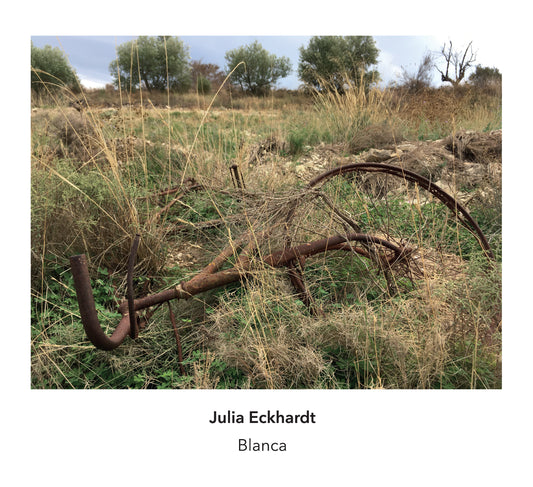
>at244
Julia Eckhardt
Blanca
NOTES ON BLANCA BY JULIA ECKHARDT
In November 2022, I spent a month as an artist in residency at Centro Negra in the small town of Blanca in the South-East of Spain. I undertook a daily protocol of walking without plan or destination which took me into the wide, majestic, and slightly intimidating hills outside the town. Each day, after a set amount of time I stopped to make a field recording and a detail photo, and upon my return to Centro Negra, recorded an improvisation on the viola echoing the energy of that accidental place. Recording, image and improvisation became three ways of creating imprints of memory. Improvising felt similar to walking into the unknown; adventurous and slightly fearful at the same time, with the wind in the wide and karstic landscape, unhampered by the sparse vegetation, being a constant presence. Eight of these improvisations became the compositions on this release in which the wind patterns of Blanca are a guiding presence.
-

>at173
Catherine Lamb
muto infinitas Catherine Lamb
Catherine LambCommentary on ‘Muto Infinitas’ by Rebecca Lane
I have been slowly working on Muto Infinitas for 5 years (!) and it charts a large part of the development of my personal and musical life with Cat Lamb, and a personal practice in playing extended just intonation (or as Cat would prefer to say, rational intonation). Jon Heilbron and I consider this piece to be a work in progress – so it is in this spirit that we offer the recording.
Box sets
our best-selling releases
Sales to USA & EU
The introduction of Trump's tariff charges initially created a lot of uncertainty about CD sales to the USA.
Thankfully tariffs don't apply to CD sales, so things are now more or less back to normal for sales to USA.
However, since Brexit posting to some EU countries has become much more difficult. Sometimes customs in, for example, Ireland and Belgium add extortionate extra charges for packets from the UK.
If you live in the European Union and are worried about possible customs
charges, you can avoid them by ordering our CDs from our European distributor
Soundohm, who stock all our discs.
You can order almost all our CDs from Soundohm’s website here
- Choosing a selection results in a full page refresh.
- Opens in a new window.
